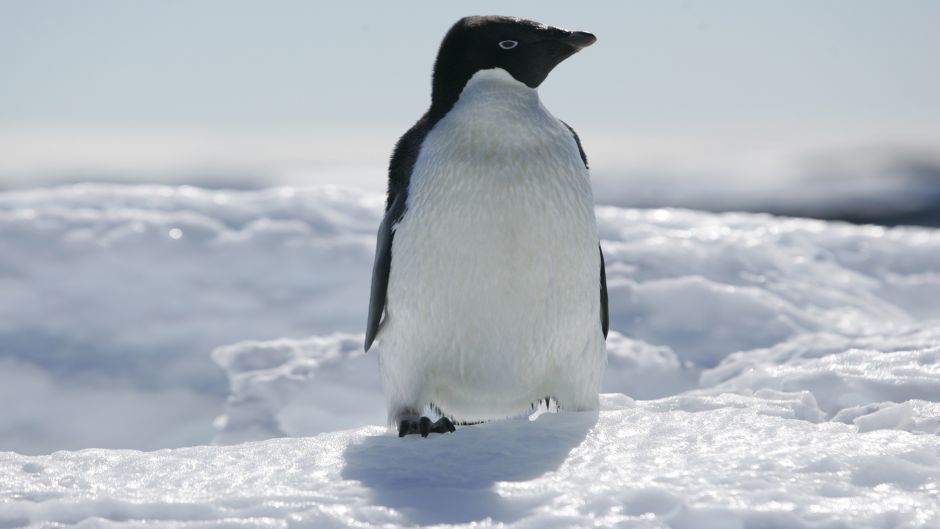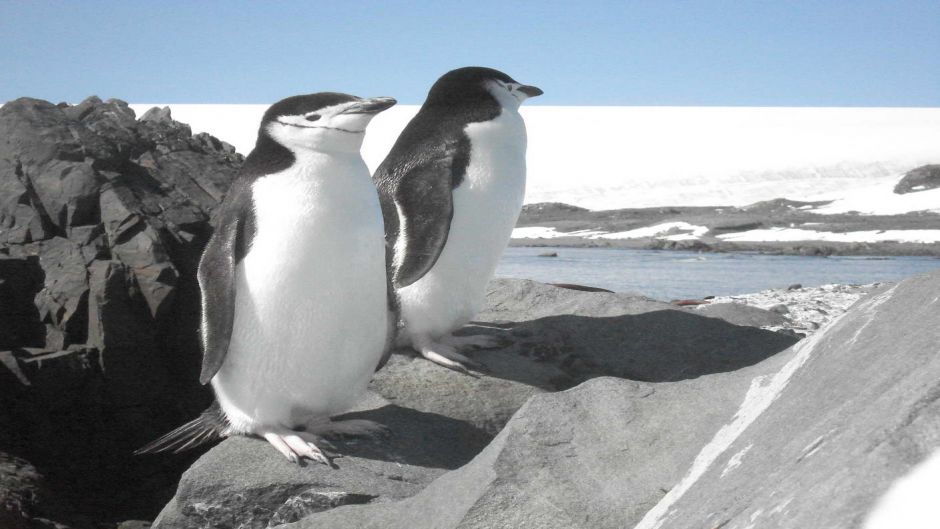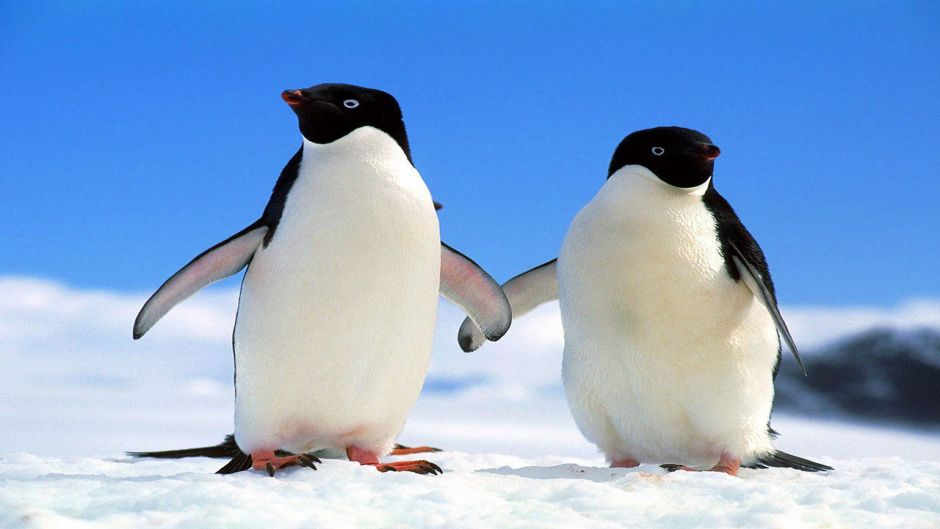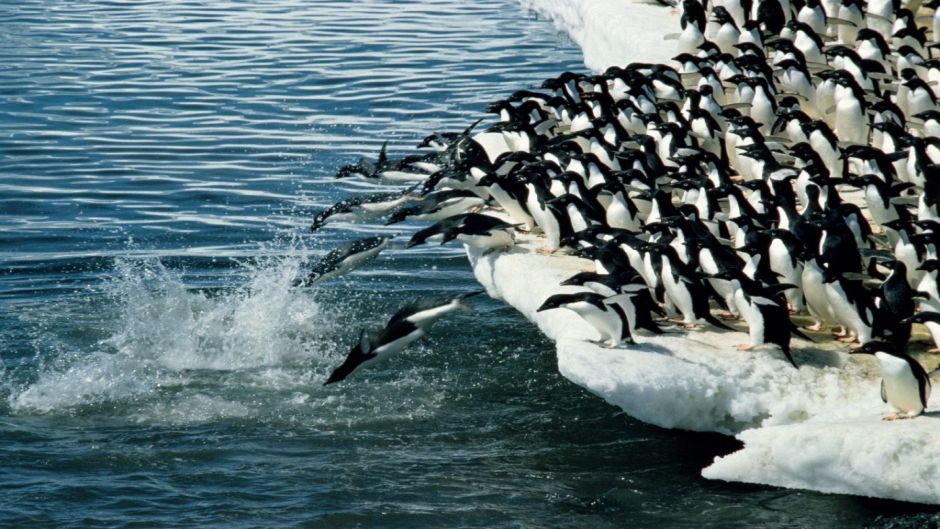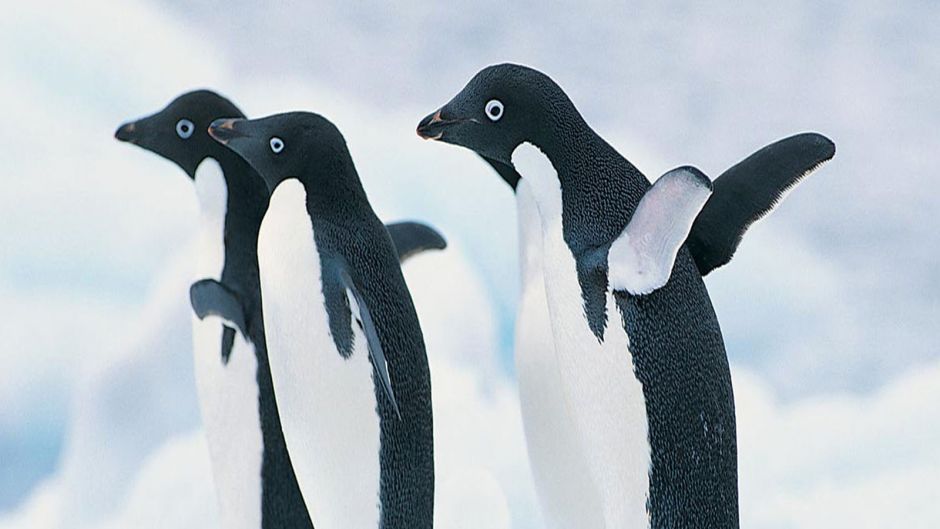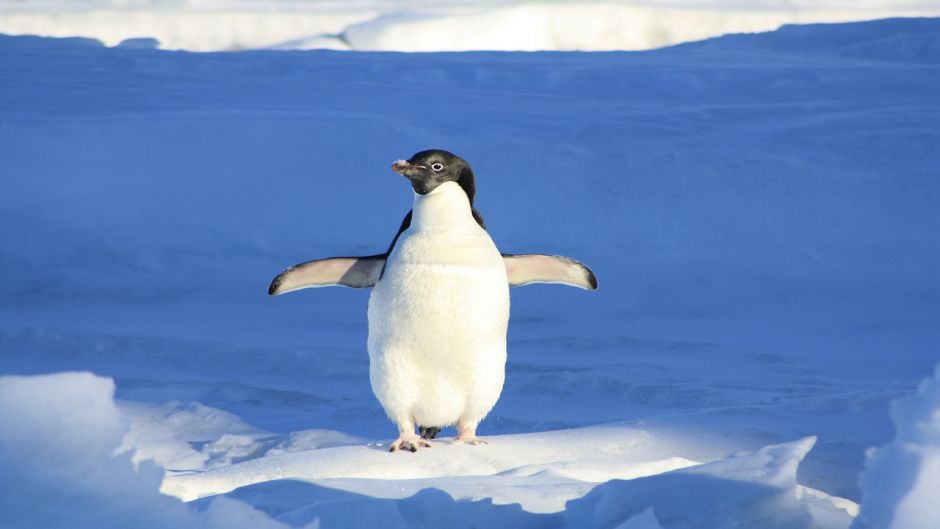Penguin Adelaide, Guia de Fauna. RutaChile
Familia:
Spheniscidae Genero:
Pygoscelis Nombre Cientifico: adeliae
Adelaide penguin (Pygoscelis adeliae), along with the emperor penguin, one of only two species of penguins living on the Antarctic continent itself. This species is common along the entire Antarctic coast and nearby islands. In 1830, French explorer Dumont DUrville named it after his wife, Adélie. Ross Island is home to a colony of about half a million penguins Adelaide.
This penguin is 60 to 70 cm long and about 4 kg. Its distinctive feature is the white circular ring surrounding the eye and feathers at the base of the peak. These long feathers hide most of the red beak. The tail is a little longer than other penguins.
The Adelaide penguins gather on breeding sites in October. Their nests consist of a group of stacked stones. Males call to the females with low guttural sound followed by loud crying. A female usually lays two eggs of brown or green. In December, the warmest in Antarctica (about -2 ° C) month, both parents take turns incubating the egg; one will get food and the other is to incubate the egg. The parent who is incubating obviously not eat. In March, the adults return to the sea with her calf.
This penguin nests in colonies. Some of these colonies are huge, with 200,000 couples, others are not so large, with no more than twenty partners. Around or near a large colony, or two medium-sized colonies, there may be other minor colonies. Almost all colonies are found in Antarctica with the exception of some on nearby islands.
Countries where lives Pinguino de Adelaida
ARGENTINA
CHILE
